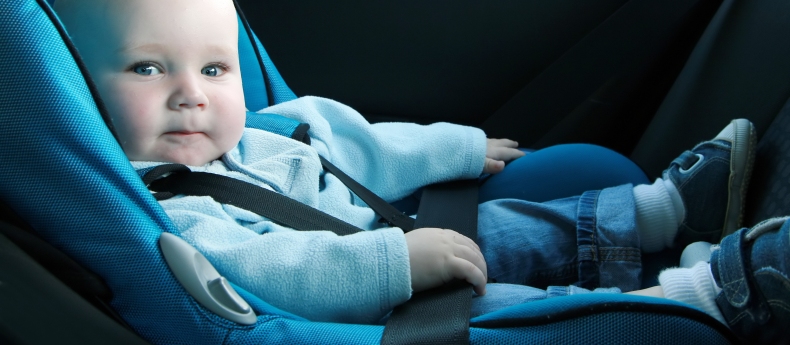
Infant and Child Safety: Prevention is the Name of the Game!
“We can do no great things; only small things with great love.” – Mother Teresa
Parenting. We think it’s the hardest job in the world, and we’re pediatricians. You spend precious time and want everything to be just right…no, perfect, and yet as always in life, sometimes things still happen to children. Often the most parents can do in these situations is ask themselves, “Did we do everything possible to prevent it from happening?” And if the answer is yes, then you’ve done sometimes the most a parent can do, which is take care of the small yet important things. But if the answer is no, here are a few tips:
Fire safety
When it comes to fire safety, everyone remembers common things like having smoke detectors, fire extinguishers, and keeping fire escapes clear of obstruction, but does your family have a fire safety plan and regular fire drills? A fire safety plan is especially important if you have young children. In addition, are your electric circuits protected by circuit breakers? Do you have the basics to start treating burns at home? Most importantly, is your baby wearing flame-resistant clothing?
Burns, falls, choking and poisonings
Don’t underestimate babies, infants, or toddlers. Electric plugs, furnace vents and floor radiators are very nice targets as the baby starts moving around, so cover them up. Babies often learn to roll over when your back is turned and if it happens on a changing table, there goes the first fall. Walkers with wheels are equally dangerous since they become a mobile object ready to topple down stairs or seemingly safe parts of the house. Curious crawling babies put everything in their mouths, which can result in choking or poisoning, so keep a watchful eye and check around the house before you let them loose. Lead poisoning from peeling paint, paint dust on toys or furniture is still common in infants, even those under a year old.
Toy safety
Whether it’s an old pot and a wooden spoon or something from Toys-R-Us, toys can be dangerous if not appropriate to a child’s age and developmental level. Small parts, especially if breakable or removable, are choking hazards, while small magnets and balloons can be deadly for those under 6 to 8 years. Beware of loose batteries, sharp edges, and projectile toys, which older siblings may have, and be careful of lead paint sometimes used in toy manufacturing.
Sleeping position and SIDS
SIDS, or Sudden Infant Death Syndrome, is the leading cause of death among infants from one month to one year. Each year in the United States, SIDS claims about 2500 young lives. The most deaths from SIDS occur between two to four months of age, while the peak season is during the colder months. The exact cause of SIDS is unknown; however there are some ways to reduce the risks and make your baby safe from this silent killer. Make sure your baby sleeps on their back on a firm mattress and take away any obstructions such as toys, comforters, or pillows. It is also important that you don’t overheat the room and never smoke around your baby.
Car seats
Car seats are vital to keeping your baby safe in the car. Children that are unrestrained or not restrained properly whilst riding in a car are at much higher risk of death if an accident were to happen. In the US, car seats are required by law from newborn until the shoulder belt can be positioned across the chest and snug across the thighs, which usually happens at about 5 years of age. However in China, the law doesn’t mandate the use of a car seat. This means that a lot of taxis are not actually equipped to install a seat, so be prepared by using car seats and arranging for vehicles that are able to support them.
Bathing and drowning
Baths are fun but babies are very slippery, so hold them carefully. Make sure to fill the bath or tub and test the water temperature on the inside of your wrist or forearm first. It is recommended that your water heater be set no higher than 120˚F (49˚C) to prevent scalds. Your baby should not be left unattended in or near any body of water whether it a tub, sink, pool, bucket, or toilet. Enclose your pool with a fence of appropriate height (at least 4 feet) and a childproof lock…those little fingers can figure out how to open just about anything.
Regular check-ups
Regular check-ups are a key part of preventive health care for your children. At each well-child visit a pediatrician will conduct a full examination, including making sure your child is eating well, tracking his or her growth and development, updating immunizations–key to keeping your child safe from vaccine preventable illnesses, finding physical problems before they become serious, helping to inform you on how to keep your child healthy and safe, and answering any questions you might have.
Key points
- Expect what is least expected
- Prevention is worth a pound of cure – an adage for the ages
- Never leave a baby or infant unattended
- Get on your hands and knees and see the hazards
References:
http://www.aap.org/parents.html
http://brightfutures.aap.org/pdfs/familypartnership.pdf
Caring for Your Baby and Young Child, Birth to Age 5, by Steven P. Shelov, MD, et al. (Oct. 2009)
Copyright United Family Healthcare 2018 All right reserved ICP 京ICP备13017554号-4




